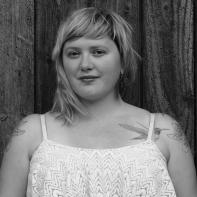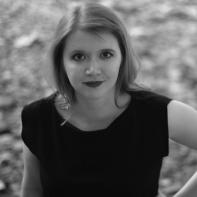 This Tuesday, we are proud to feature a podcast of SR contributor Shawna Ervin reading her essay from Issue 17.
This Tuesday, we are proud to feature a podcast of SR contributor Shawna Ervin reading her essay from Issue 17.
You can listen to the podcast on our iTunes channel, podcast #228.
You can follow along with Shawna’s essay in Superstition Review, Issue 17.
More about the author:
Shawna is a Pushcart nominee and has taught writing workshops for both adults and children. She is a member of Lighthouse Writers Workshop in Denver, where she recently graduated from the Book Project, a two-year intensive mentoring program. She is working on a memoir about her experience in foster care and adopting two kids from South Korea. Recent publications include poetry in Forge, and prose in Moon City Review, Willow Review, Existere, The Delmarva Review, The Diverse Arts Project, and Sliver of Stone.





